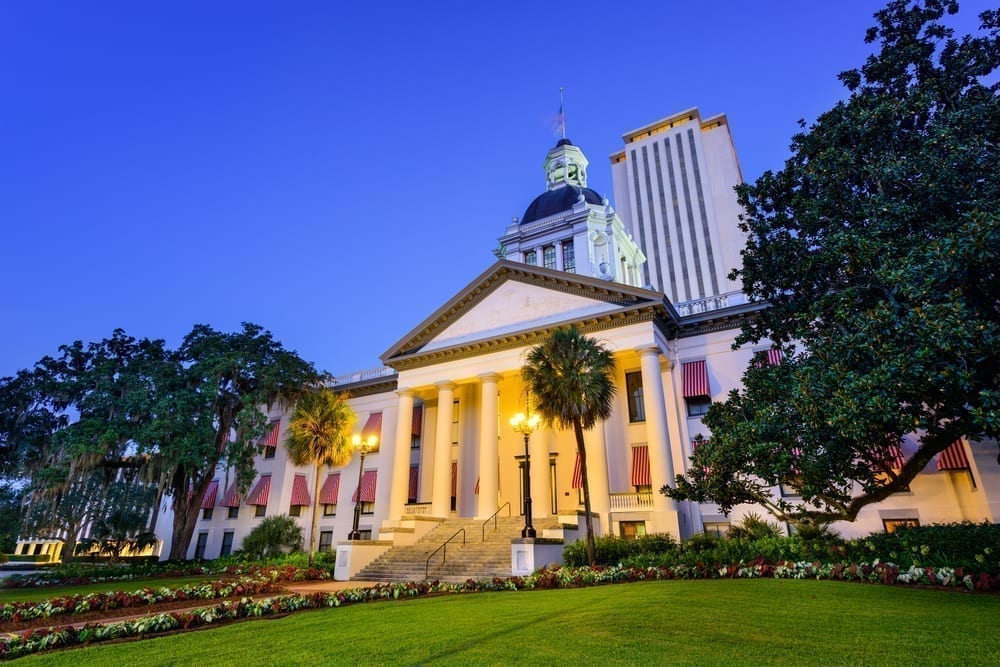Florida vacation rentals professionals are hitting the proverbial “dance floor” this week, and the first song just may be “Twist and Shout.”
Florida House Bill 219 co-sponsored by Representative Jason Fischer (FL-R/16th District) and Representative Anthony Sabatini (FL-R/32nd District) and Senate Bill 522 from Senator Manny Diaz, Jr. (FL-R/36th District) are companion bills in the Florida House and Senate.
House Bill 219 is in committee this week, and the Senate version (522) is going before the Regulated Industries committee on February 16.
The bills will likely face six committees before the floor of each chamber.
The current bills are almost identical to last year’s bills, which made it to the last hearing before they were temporarily postponed due to COVID-19 and other natural disasters that disrupted the 2020 session.
Known as the “Vacation Rentals” bills, they “preempt regulation of vacation rentals to state; prohibits local law, ordinance, or regulation from allowing or requiring inspections or licensing of public lodging establishments, including vacation rentals, or public food service establishments; requires licenses issued by Division of Hotels & Restaurants of Department of Business and Professional Regulation (DBPR) to be displayed conspicuously to the public inside the licensed establishment.”
Simply put, they help regulate and professionalize vacation rental management companies fairly.
Why do we need them?
 According to Denis Hanks, executive director of Florida Vacation Rentals Management Association (FVRMA) since 2014, “This legislation is extremely important to Florida’s vacation rental industry because it standardizes compliance on many different levels.”
According to Denis Hanks, executive director of Florida Vacation Rentals Management Association (FVRMA) since 2014, “This legislation is extremely important to Florida’s vacation rental industry because it standardizes compliance on many different levels.”
Why would the vacation rental industry want to put more regulations upon itself?
For Hanks, it’s simple: “To be the most outstanding professional vacation rental industry in the USA and lead by example since Florida has 26 percent of the US market.”
FVRMA supports these bills though they “realize some areas within the bills still need tweaking to make them better.” Hanks is confident this will happen while the bill is going through committees and sessions.
Hanks defends FVRMA’s position with these points:
- When we talk about competition for today’s professional owner/manager? Imagine that in any part of the Florida market the greatest competitor of any professional operator is actually the vacation rental operator that does not obtain a license or pay its required taxes. They undercut their competitors pricing, operate less professionally and many times lack the experience and knowledge to provide the utmost in guest experiences. With this bill, every listing statewide must list a verified license number and tax ID number or risk being removed from a platform.
- Under this bill, all OTAs and advertising platforms will be regulated by the state. This includes platforms that have emerged with yet more vacation rental listings, such as Facebook Marketplace and Craigslist. It is estimated that Florida has more than 20,000 listings on those two sites alone and listings have almost no oversight or protections for guest bookings. Our members, as well as the Florida DBPR and law enforcement agencies, have expressed concerns about listings being cloned and other related scams on the less regulated platforms.
- This bill also allows for one inspection and license scheme controlled by the state and not at three levels as we see in many local jurisdictions. In some cases, operators have city, county, and state hoops of license and registration to go through with fees at each level.
- It also allows local governments to make current ordinances less restrictive if they choose.
- It protects the private property rights of vacation rental owners while also regulating the industry to protect the neighbors and their private property rights.
The bills do have some well-funded opposition.
Namely, the hotel industry, which Hanks says, “continues to push more and more poison language into the bills to stifle their competition and push more regulations on vacation rentals that they themselves don’t even have to deal with.”
And local government officials and their lobbyists at the Florida League of Cities and Counties.
The claim?
The bills remove all of their ability to regulate vacation rentals.
Hanks pushes back on this notion arguing that “big three” complaints of every city: noise parking and trash are issues irrespective of the vacation rental industry.
“Each city and county already have noise, parking, and trash ordinances established, yet they want to create a new level of regulations just for vacation rentals,” he says.
Bill 519 says that you can create new ordinances to regulate these nuisances, but vacation rental homes can’t be singled out. They must apply these regulations to all residential homes in a community. In addition, the bill removes all local ordinances that have overreached with regulations and those that have singled out vacation rentals since 2011.
Hanks says some cities have imposed multiple layers of inspections with enormous fees and stringent requirements and timelines to get homes approved to operate under new local rules.

“Many rules are implemented to curb the vacation rental activity and prohibit the use of homes for vacation rentals, which violates state statutes,” he says.
What can vacation rental property managers do?
Like Lino Maldonado, president of BeHome247 and former chair of VISIT FLORIDA (2018-2019), they can share their voice. He is traveling to Tallahassee today to address the Florida House Regulatory Reform Subcommittee officials.
“I am speaking in support of FL-HB 219 on behalf of the short-term rental industry as a previous operator and now a supplier to the industry,” he says. “We want to accomplish a few things. One is to preempt any further restrictions on the industry to the state level so that operators in multiple counties don’t have to manage to a different and ever-changing set of rules to run their businesses.
“Secondly, we believe that a certification program in some form would be a good way to delineate professional operators from the ‘fly by night managers’ that do not typically follow city/county or even state regulations involving collecting and/or paying sales and bed taxes and other negative impacts to communities such as ‘party houses.'”
Maldonado describes FL-HB 219 as “a good start” and, like Hanks, agrees that it “doesn’t circumvent local rule as current “legal” rules are grandfathered in and local governments still have full control over nuisances such as noise, parking, trash, etc.”
Hanks encourages others to follow Maldonado’s lead.
“We need managers and owners to start getting involved in the process. Sign our petition, email the elected officials and also call when needed. Testimony is difficult with COVID-19 protocols, but it is happening. Property managers should engage their homeowners and tell them to help support these bills. A larger voice is needed,” says Hanks.



All homeowners should be treated equally cities have ordinance they need to enforce them .
If there is an issue not punish other homeowners for the few that can’t vet and make sure their property is used without bothering other homeowners.